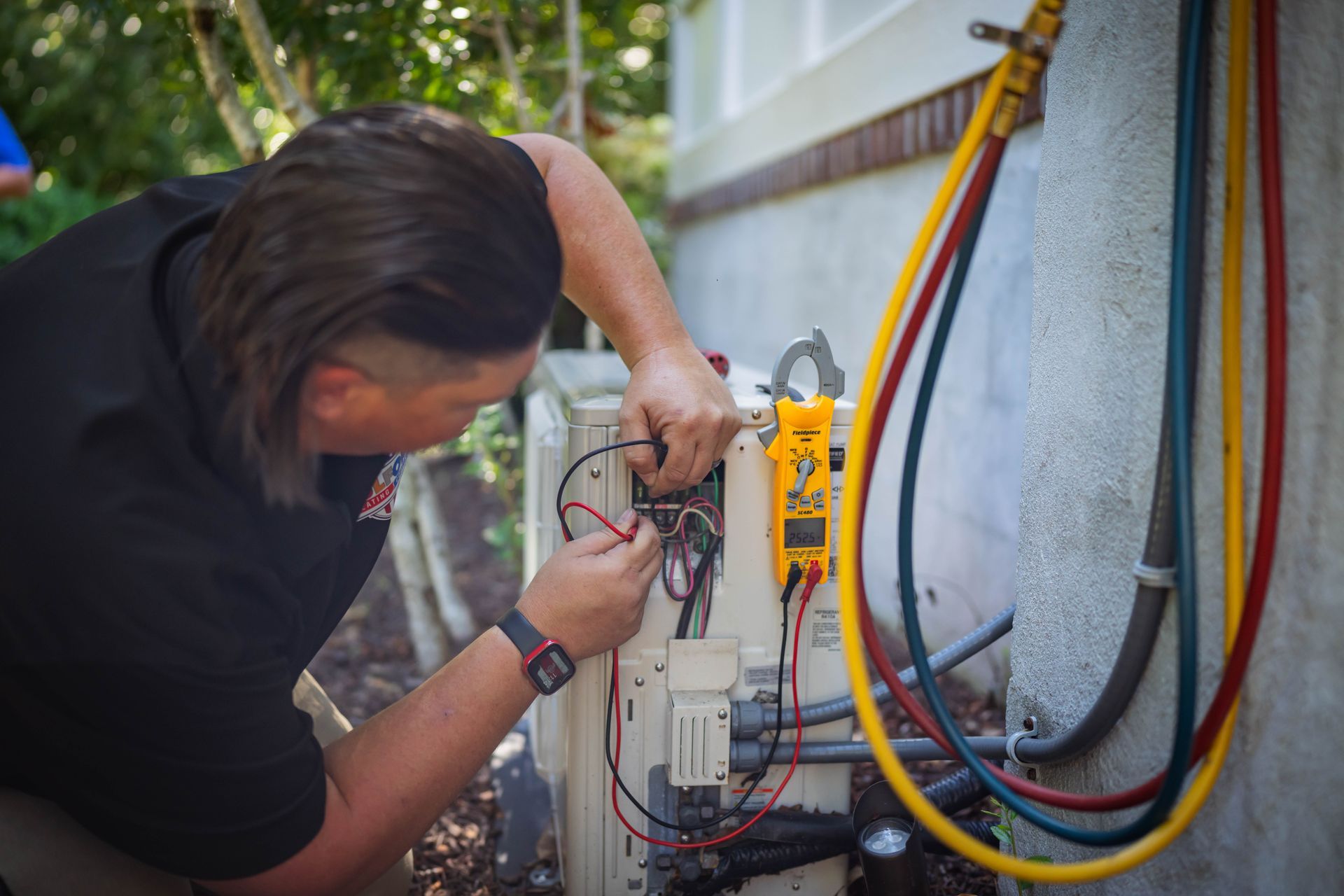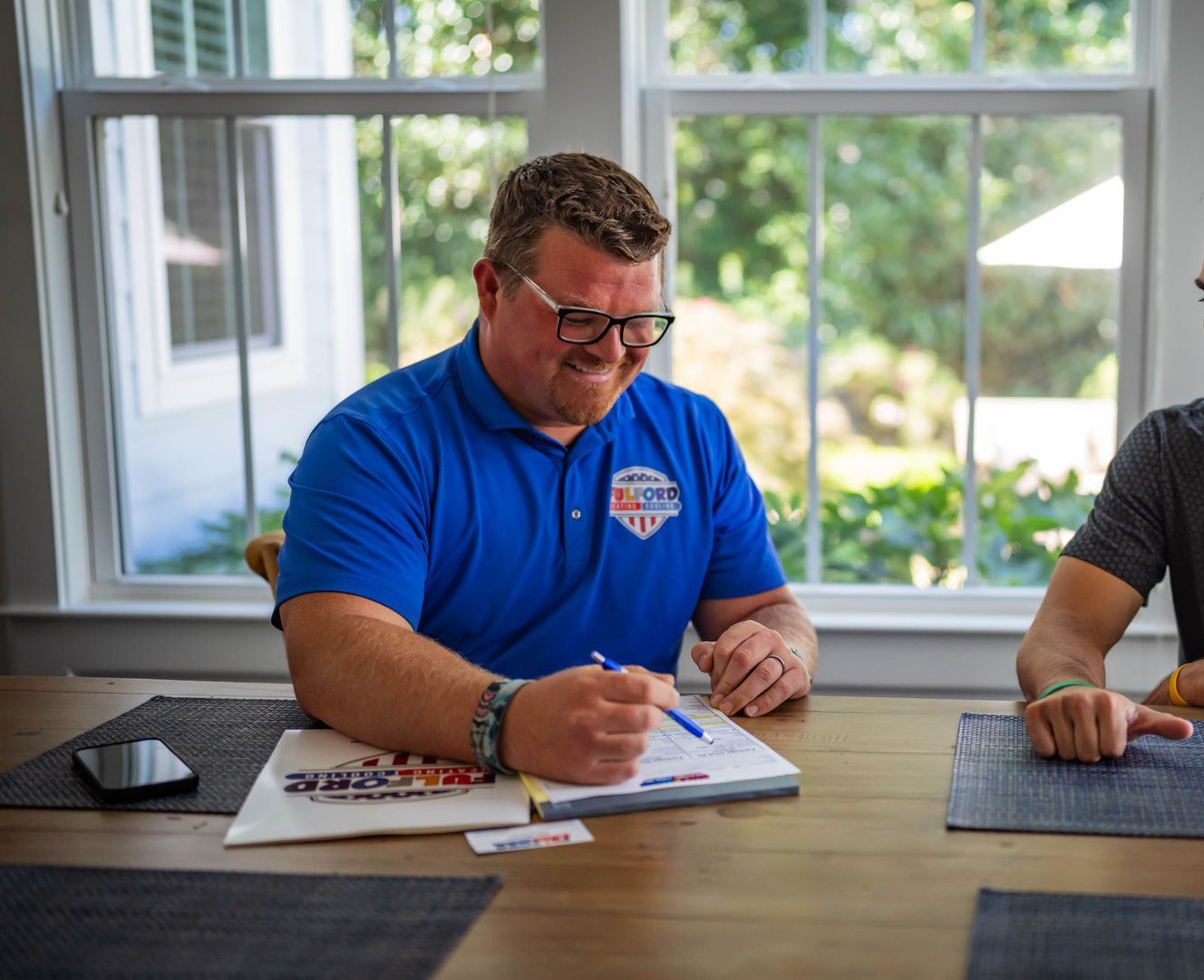Blog
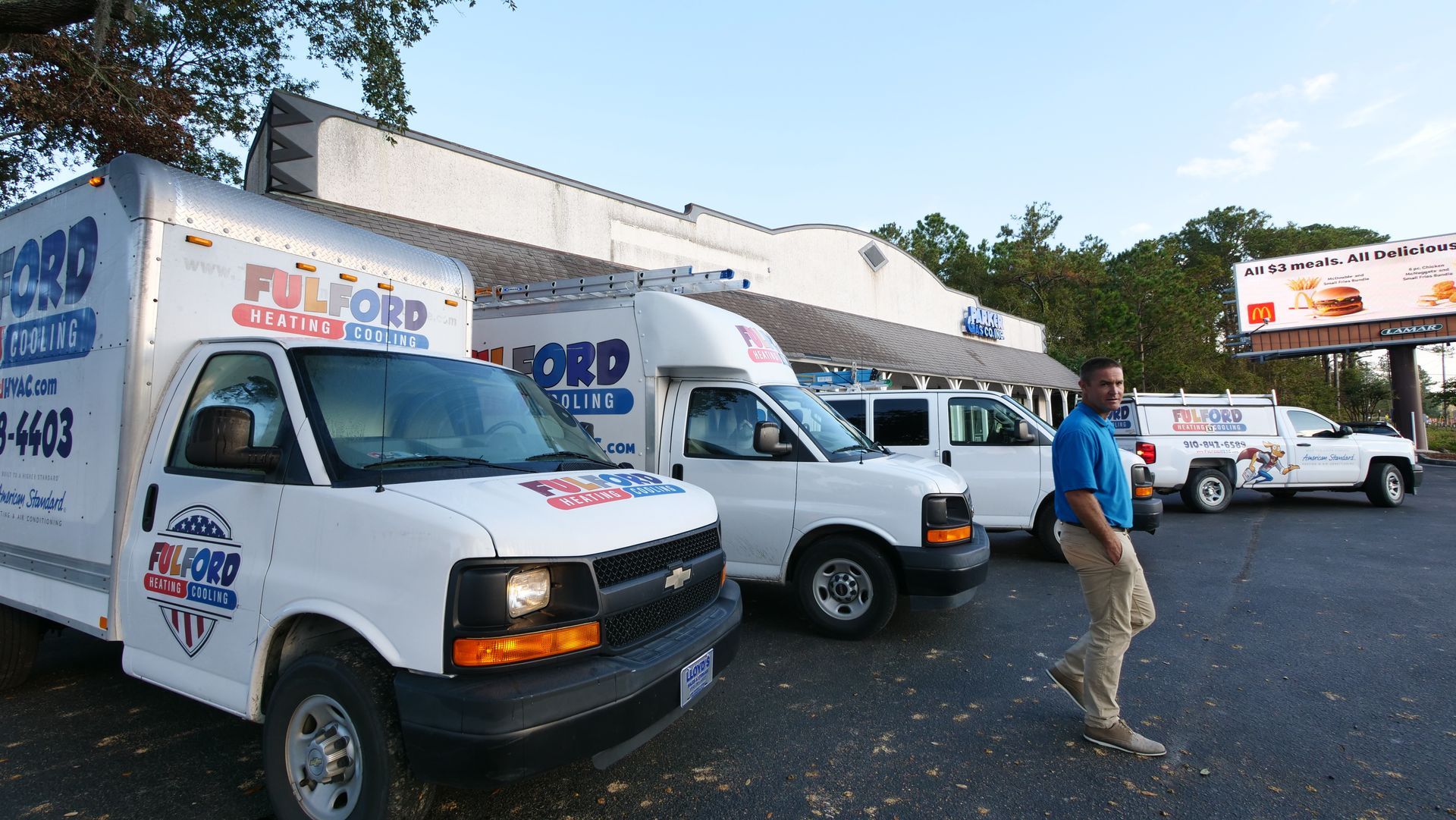
As the coastal air cools and the first real “cold snaps” hit in Wilmington, homes along the shore begin relying more on their heating systems than many expect. While winters in the region may not reach extreme temperatures, the change still brings unique HVAC challenges: sudden night-time drops, high humidity even when it’s cooler, and systems shifting from cooling to heating mode. At Fulford Heating & Cooling, we’ve put together the smart checks homeowners should focus on now to keep their homes comfortable, safe, and efficient—without waiting for the first deep chill. 1. Don’t Underestimate the Overnight Drop On the coast, when the sun sets, the temperature often dips quicker than many realize. Your heating system may do fine on a mild afternoon, but the overnight low can reveal hidden issues: unfinished attic spaces, leaky ductwork, or small thermostat settings suddenly showing their inefficiencies. Tip: After sunset, check the temperature in the room that tends to feel the coldest. If it drops significantly below your set point, your system might be cycling inefficiently or heat loss may be happening elsewhere. 2. Heat Pumps (or Dual-Mode Systems) Need Attention Too Many homes in the area rely on heat pumps or dual-mode systems (cooling + heating) rather than traditional furnaces. When temps dip (even into the 40s or 30s), the system switches into heating mode and may face greater load or defrost cycles. Checklist item: Clear around the outdoor unit—ensure there’s at least 24–36 inches of clearance so airflow isn’t restricted. If you have a heat pump, confirm the defrost cycle is operating cleanly and your thermostat is properly switching modes. 3. Humidity Still Matters in “Cooler” Weather Cooler doesn’t always mean dry—especially near the coast. While you might be turning off the AC, humidity can linger, and your heating system still plays a role in managing indoor comfort. Stale air, windows open at night, humidity creeping in—these affect comfort and energy use. Smart homeowners do this: Place a hygrometer in a main living space. Aim for relative humidity around 40-45% during the heating season. If it’s over 50%, consider checking crawlspace or attic vents; if under 30%, consider a whole-house humidifier or a portable unit. 4. Optimize “Off” Hours as Well as “On” Hours Your system may run more now than it did in summer, but there are still times when it should not run—like when you’re away, or when a sunny afternoon warms one area of the home unexpectedly. Tip: Use a programmable or smart thermostat to slightly lower set-points when no one’s home or late at night. Switch your system’s fan mode from “On” to “Auto” so the blower isn’t running unnecessarily. This small Change can lower wear-and-tear and reduce your heating bill. 5. Safety and Comfort: Find the Drafty Spots That cool breeze near a door, a chill at the baseboard, or a room that never quite warms up—these can signal leaks, airflow issues, or insulation gaps. It’s not just comfort—it’s a sign your system is working harder than it needs to. Best move: After your heating system has been running for a while, walk through your home with your phone in “thermal” mode (many cameras support this) or pay attention to cold spots and odd airflow. If one room always lags, ask Fulford Heating & Cooling to inspect ductwork, balancing, and insulation. Why Fulford Heating & Cooling Is Your Cold-Weather Partner Local expertise: Based in Wilmington, we know the coastal micro-climate—including those nights when the wind kicks up off the water. Full-service heating team: From heat pumps and furnaces to annual maintenance and emergency responsiveness. Trusted equipment brands: We install & service top brands to ensure performance, lifetime value, and comfort. Community-first service: We’ve served Wilmington and the surrounding coast for decades, built on reliable service and local trust. Don’t wait until the first major cold snap to find out something’s off. A few proactive steps now—thermostat settings checked, outdoor unit clearance ensured, humidity measured, and drafty spots identified—can prevent discomfort, a surprise energy bill, or an urgent repair call. If you’d like a professional inspection or tune-up, call Fulford Heating & Cooling at (910)-842-6589 , and schedule your home’s heating check before deeper chill sets in. Stay warm, stay ahead, and enjoy the season—one that coastal comfort should deliver, not complicate.
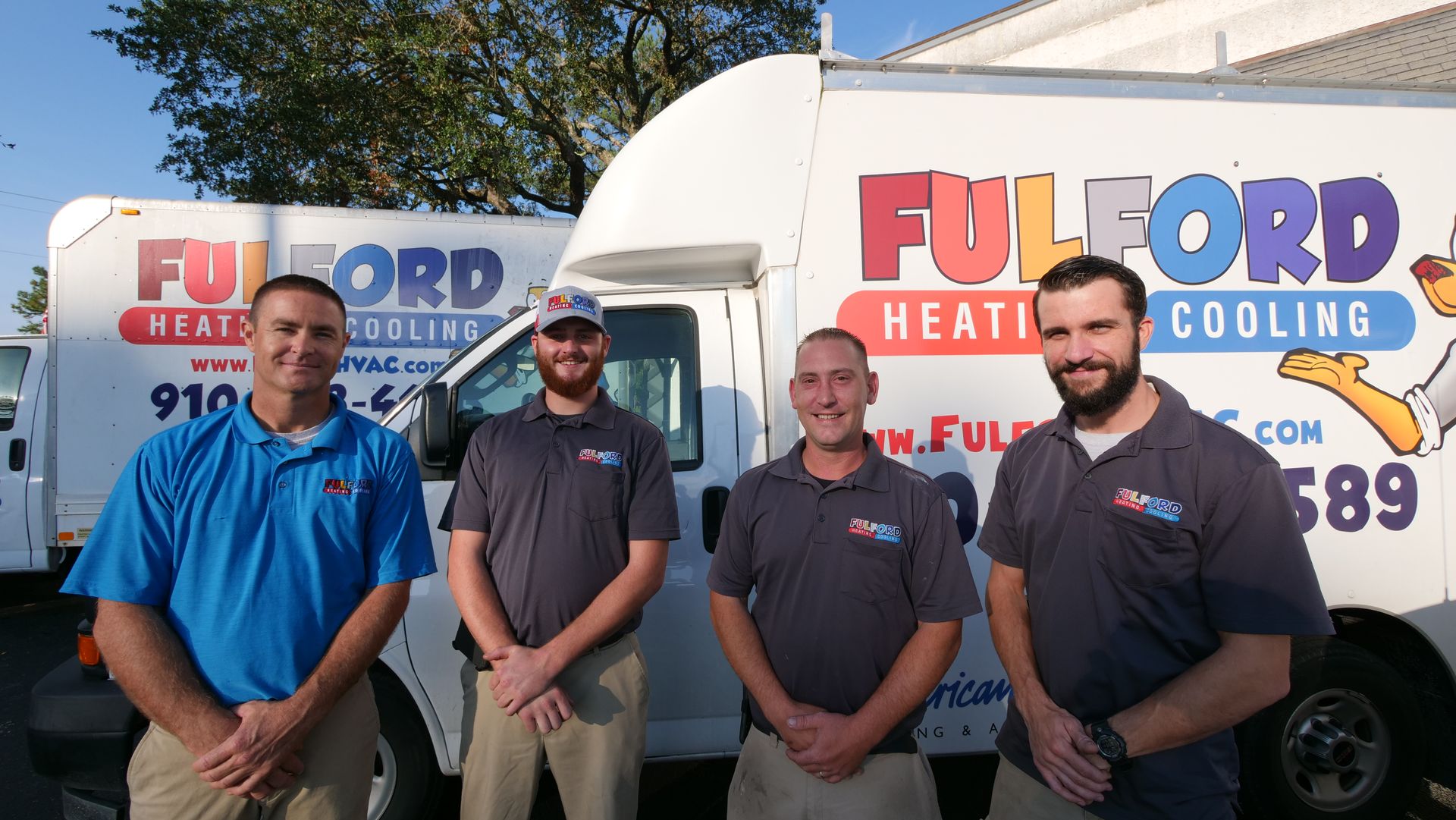
As we wind down September and gear up for fall and winter, many homeowners start thinking long term — and that includes preparing for major home system investments like HVAC replacement. Replacing your system isn’t something most people do often, so planning ahead can ease the shock to your wallet. At Fulford Heating & Cooling, we believe an informed customer is a confident customer. Here’s how to budget and plan for your next HVAC upgrade. 1. Know the Full Scope of Costs When you hear “HVAC replacement,” most people think of just the unit itself—but there are several hidden or supporting costs to consider: Equipment cost: The HVAC unit (furnace, air conditioner, heat pump) itself. Installation labor: This includes hauling the old unit out, installing new ductwork (if needed), connecting gas lines, wiring, etc. Ductwork repairs or replacement: Leaky or poorly insulated ducts may need repair or full replacement. Permits and inspections: Local codes may require permits, inspections, or compliance with energy standards. Accessories or upgrades: Thermostats, zoning systems, air handlers, condensate pumps, insulation, etc. Post-installation adjustments: Ensuring airflows, pressures, and system settings are optimized. 2. Estimate a Budget Range Based on size, efficiency ratings, and installation complexity, HVAC replacements can vary widely. For many residential homes, budgets often fall somewhere between $5,000 and $12,000 or more. Use this as a starting point, then refine your estimate using your home’s square footage, insulation quality, and local labor rates. 3. Start a “HVAC Replacement Fund” Just like you’d budget for a new roof or a car, start putting aside a small monthly amount. For example, over 12–18 months, setting aside $200–$400 per month can make the full replacement far less of a shock. By the time the system begins to underperform or show signs of aging, you may have much of the cost already covered. 4. Monitor Key Indicators of System Aging You don’t have to wait until your system fails to plan replacement. Watch for signs of decline: Rising energy bills, despite no change in usage Frequent breakdowns or service calls Strange noises, odors, or uneven heating or cooling The system is 10–15 years old (typical expected lifespan) Parts becoming obsolete or harder to source Tracking these signals early gives you time to prepare ahead. 5. Get Multiple Written Quotes Early Don’t wait until your system quits entirely. Request written estimates from two or three reputable HVAC contractors (including Fulford), and compare them carefully. Make sure each quote includes: Equipment make and model Labor and installation costs Ductwork or additional repair needs Permits or inspection fees Accessories or upgrades Total project cost Asking for line-item breakdowns helps you understand where cost differences come from and ensures you’re comparing apples to apples. That way, when you’re ready to move forward, you won’t feel rushed into a decision. Replacing your HVAC system is a major decision — one worth planning for, not rushing into. By understanding full costs, creating a replacement fund, monitoring system health, and collecting quotes in advance, you’ll be in control when the time comes. If you’d like help estimating a quote, comparing options, or knowing when your system is nearing replacement, Fulford Heating & Cooling is here to help. Contact us today to schedule a consultation and start planning ahead so your home is ready for the colder months. To learn more about some of the energy efficient heating and air conditioning products we carry and install, check out our products page .
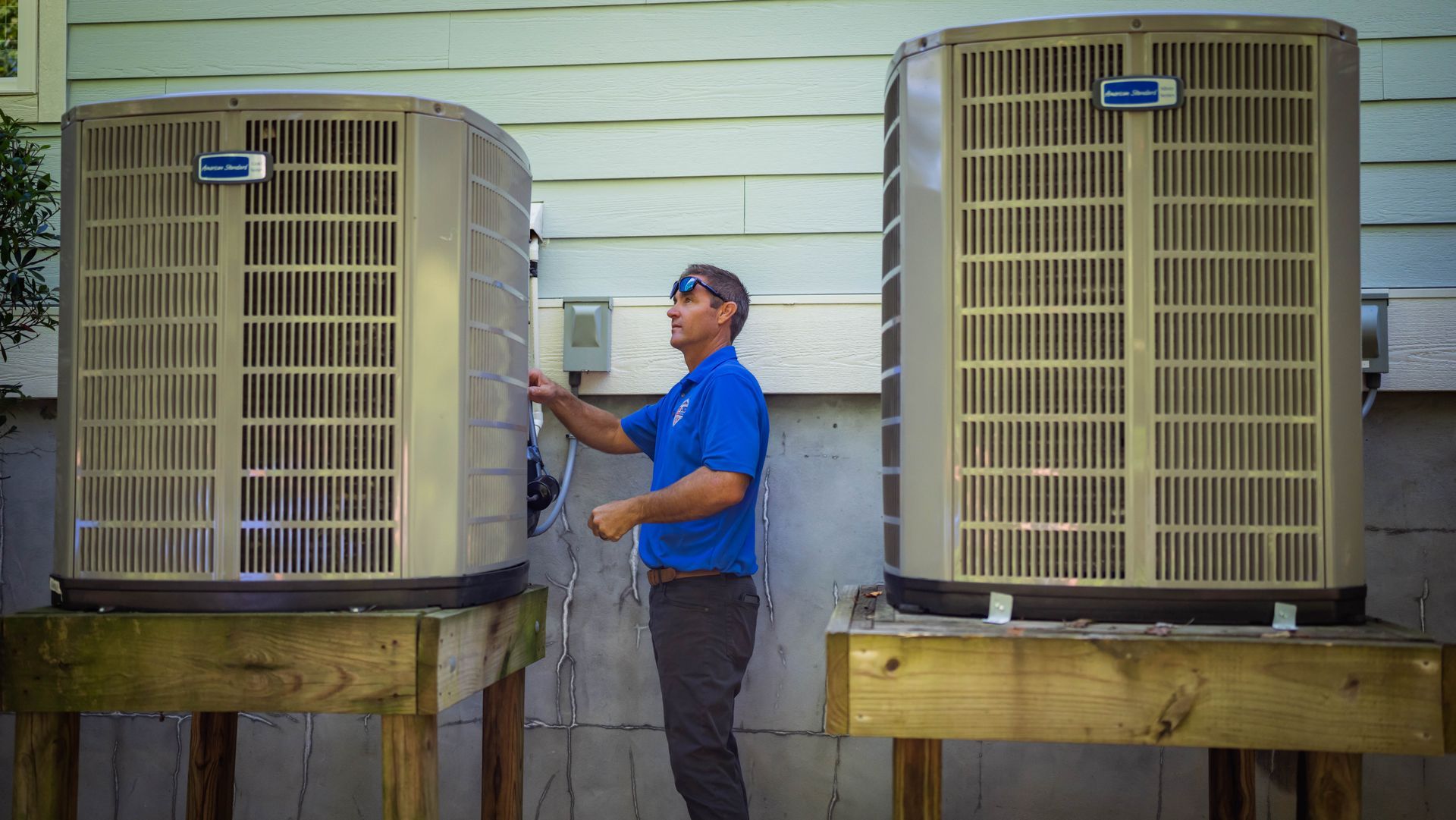
As summer in Wilmington winds down, your air conditioner has probably been working hard to keep you comfortable through the coastal heat and humidity. Before you switch over to heating season, taking time to give your AC a little TLC can make a big difference in its performance and longevity. At Fulford Heating & Cooling, we’ve been helping local homeowners keep their systems running smoothly for over 50 years — and we know that a few simple maintenance steps now can prevent costly repairs later. Here are five end-of-summer AC maintenance tasks you shouldn’t skip: 1. Replace or Clean Your Air Filter Summer pollen, dust, and pet dander can clog your air filter fast — especially in humid climates like Wilmington. A dirty filter forces your AC to work harder, reduces airflow, and can lead to higher energy bills. Swapping in a fresh filter (or cleaning a reusable one) helps maintain good air quality and keeps your system running efficiently. 2. Check and Clean the Outdoor Unit Over the summer, leaves, grass clippings, and coastal debris can accumulate around your outdoor condenser unit. This buildup can block airflow and strain your system. Clear away any debris, trim back plants at least 2 feet, and gently rinse the fins with a garden hose to keep everything breathing freely. 3. Inspect Your Drain Line Your AC removes moisture from the air, and that water exits through a condensate drain line. Over time, algae or debris can clog this line, leading to water leaks and even indoor water damage. Flush the line with a mixture of warm water and vinegar to keep it clear. 4. Check Thermostat Settings As the seasons change, it’s a good time to make sure your thermostat is set for maximum comfort and efficiency. If you have a programmable or smart thermostat, adjust the schedule to fit your fall routine. A quick battery check is also a good idea if your thermostat uses them. 5. Schedule a Professional End-of-Season Tune-Up Even if your AC seems to be running fine, a professional inspection can catch small issues before they become big repairs. Our certified technicians at Fulford Heating & Cooling will check refrigerant levels, inspect electrical connections, test system performance, and make sure your unit is ready for next summer — or the switch to heating. Why End-of-Summer Maintenance Matters By taking care of your AC now, you can: Prevent costly breakdowns next cooling season Improve energy efficiency (and lower your bills) Extend the life of your system Maintain better indoor air quality Need AC maintenance in Wilmington, NC? Contact Fulford Heating & Cooling today to schedule your end-of-summer tune-up. We’ll make sure your system is clean, efficient, and ready for whatever North Carolina weather brings next. 📞 Call us at 910-842-6589 🌐 Schedule service today
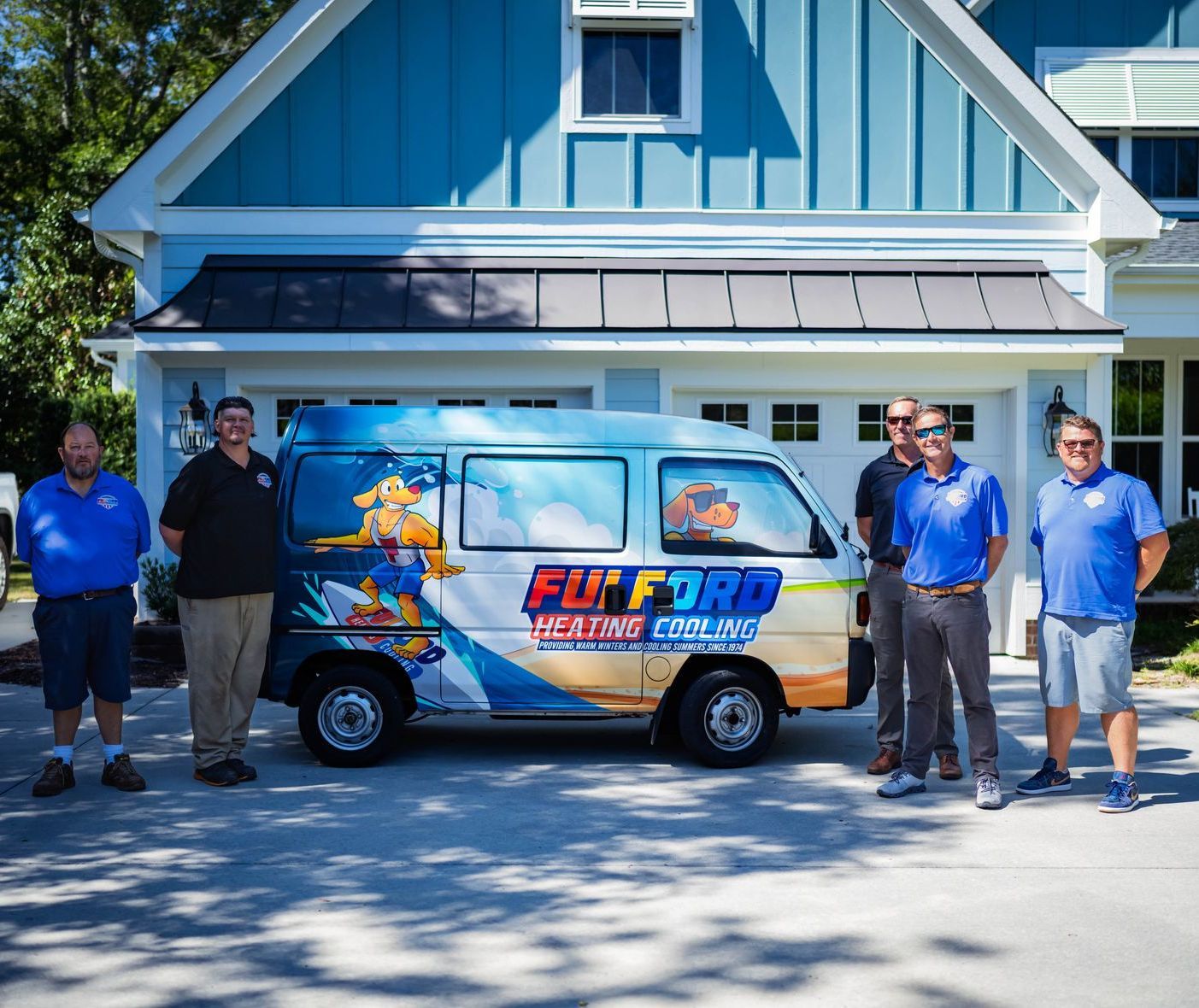
Living on the coast of North Carolina comes with its perks—beaches, breezes, and beautiful sunsets. But if you’ve lived in Wilmington long enough, you know the coastal humidity can be brutal—especially during the height of summer. For your air conditioning system, that humid air isn’t just uncomfortable; it’s a real challenge. At Fulford Heating & Cooling, we’ve been helping homeowners in Southeastern NC stay cool for over 45 years. Here are our top tips to keep your AC running efficiently and reliably in our unique climate. 1. Change Your Air Filters More Frequently High humidity levels mean your HVAC system is working harder to filter out moisture, dust, and allergens. In our area, you should check your filter every 30 days during the summer months and replace it as needed—especially if you have pets or live near the Intracoastal Waterway. 2. Schedule Regular AC Maintenance Humidity puts extra strain on your cooling system. With preventative maintenance, our certified technicians can: Clean your coils and condensate drain line (critical in humid climates) Check refrigerant levels Inspect for corrosion or salt damage (common in coastal regions) A seasonal tune-up keeps your AC running smoothly and helps you avoid mid-summer breakdowns. 3. Use a Dehumidifier to Support Your AC While your AC naturally removes some moisture from the air, it isn’t designed to handle Wilmington’s thick summer humidity on its own. Installing a whole-home dehumidifier can: Lighten the load on your AC Improve indoor air quality Prevent mold and mildew Bonus: Your home will feel cooler at a higher thermostat setting, which saves on energy bills. 4. Keep the Outdoor Unit Clear Your outdoor condenser needs plenty of airflow to work efficiently. Make sure to: Clear away grass clippings, sand, and salt buildup Trim back bushes and plants at least 2 feet Rinse the unit with a garden hose (lightly!) to remove salt spray Humidity and salt air can corrode your unit over time, so a little cleaning goes a long way. 5. Seal Leaky Ducts and Windows Humidity loves to find its way inside. Poorly sealed ductwork or drafty windows can let moisture in and cooled air out. Fulford’s techs can inspect your ducts and recommend sealing or insulation upgrades to help reduce that unwanted humidity and improve efficiency. 6. Know the Signs of a Struggling AC Humidity can mask the early warning signs of AC trouble. Watch for: Weak airflow Excess condensation or water leaks A system running constantly but not cooling well Musty or damp odors Don’t wait until it stops working—call our team for a quick inspection. Local Expertise You Can Count On We know Wilmington’s climate inside and out—because we live here too. At Fulford Heating & Cooling, our goal is to keep your family cool, comfortable, and confident in your HVAC system—even on the most humid days of summer. If your AC is struggling with humidity, or you want a professional tune-up, schedule an appointment with our expert team today.
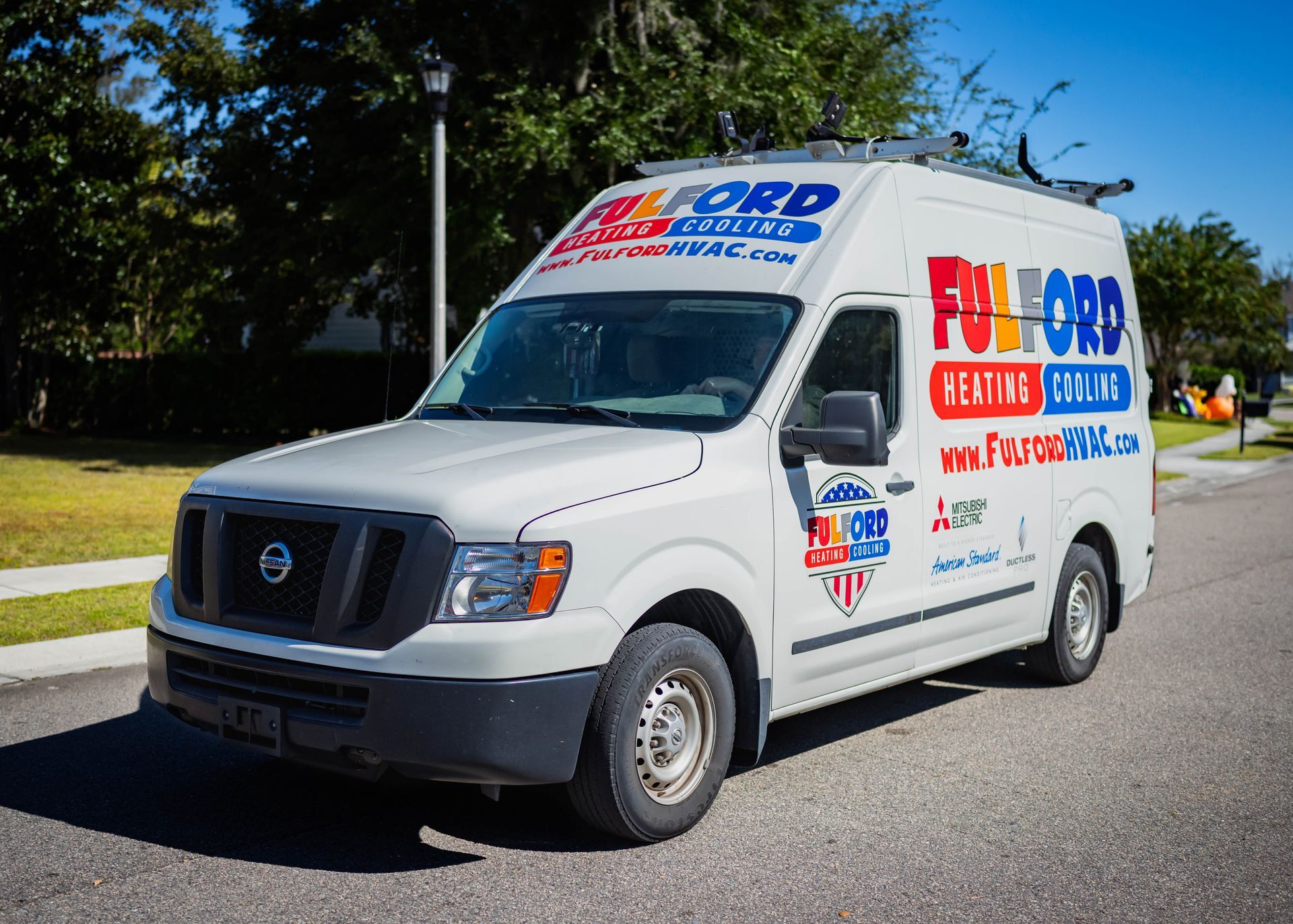
As Wilmington’s temperatures rise and humidity creeps in, your air conditioner becomes your best friend. But if your AC has been struggling to keep up, making strange noises, or driving your energy bill through the roof, it might be trying to tell you something: it’s time for a replacement. At Fulford Heating & Cooling, we understand that replacing your air conditioner is a big decision. Below, we break down the top signs it might be time to make the switch—and how investing in a new system can actually save you money and stress in the long run. 1. Your AC Is 10–15 Years Old Most air conditioners have a lifespan of around 10–15 years. If yours is approaching (or past) that range, it's only a matter of time before repairs become more frequent and less effective. Newer systems are also far more energy-efficient, offering better performance and lower utility costs. Wilmington tip: Coastal air can wear out HVAC components faster than in drier climates. Routine maintenance helps, but replacement may come sooner. 2. Your Energy Bills Are Climbing Have you noticed your electric bill creeping up—despite no major changes in usage? An older or inefficient AC system could be working overtime to keep your home cool, using more energy than necessary. Replacing it with a high-efficiency model can reduce monthly costs and improve comfort. 3. Frequent Repairs Are Adding Up An occasional repair isn’t unusual, but if you’ve had to call for service multiple times in the past couple of years, it may be time to stop sinking money into temporary fixes. In many cases, the cost of repeated repairs can surpass the price of a brand-new system. 4. Your Home Isn't Cooling Evenly Are some rooms too hot while others are freezing? Inconsistent temperatures often indicate a system that’s too small, outdated, or failing. A properly sized, modern AC system will deliver balanced cooling throughout your home. 5. Strange Sounds or Odors Unusual banging, rattling, or musty smells can signal serious issues within the system—like worn-out parts, mold, or electrical problems. These issues are more than just annoying; they can also be health hazards or signs your system is on its last leg. 6. You’re Still Using R-22 Refrigerant If your unit was installed before 2010, there’s a good chance it still uses R-22 (Freon) , which is no longer being manufactured. If your system develops a refrigerant leak, repairs can be costly—or even impossible. New AC systems use more eco-friendly and readily available refrigerants like R-410A. 7. You Want Smart Features & Better Air Quality Modern HVAC systems offer more than just cooling. From Wi-Fi thermostats to built-in air purification and humidity control , upgrading your AC can improve your home’s comfort, air quality, and convenience. Let Fulford Help You Make the Right Choice At Fulford Heating & Cooling, we’ve proudly served Wilmington, NC and surrounding coastal communities since 1973. Whether you’re unsure about your current system’s condition or ready to explore your options, our experienced team can provide honest recommendations and expert installation. We offer: Free estimates on system replacements High-efficiency Lennox and Trane units Financing options Year-round service and support Ready to Upgrade? If your air conditioner is showing any of these signs, don’t wait until the heat becomes unbearable. Contact Fulford Heating & Cooling today at (910) 842-6589 or schedule a consultation online to find out if it’s time to replace your AC system. Let’s keep your home cool, comfortable, and efficient—no matter how hot Wilmington gets.
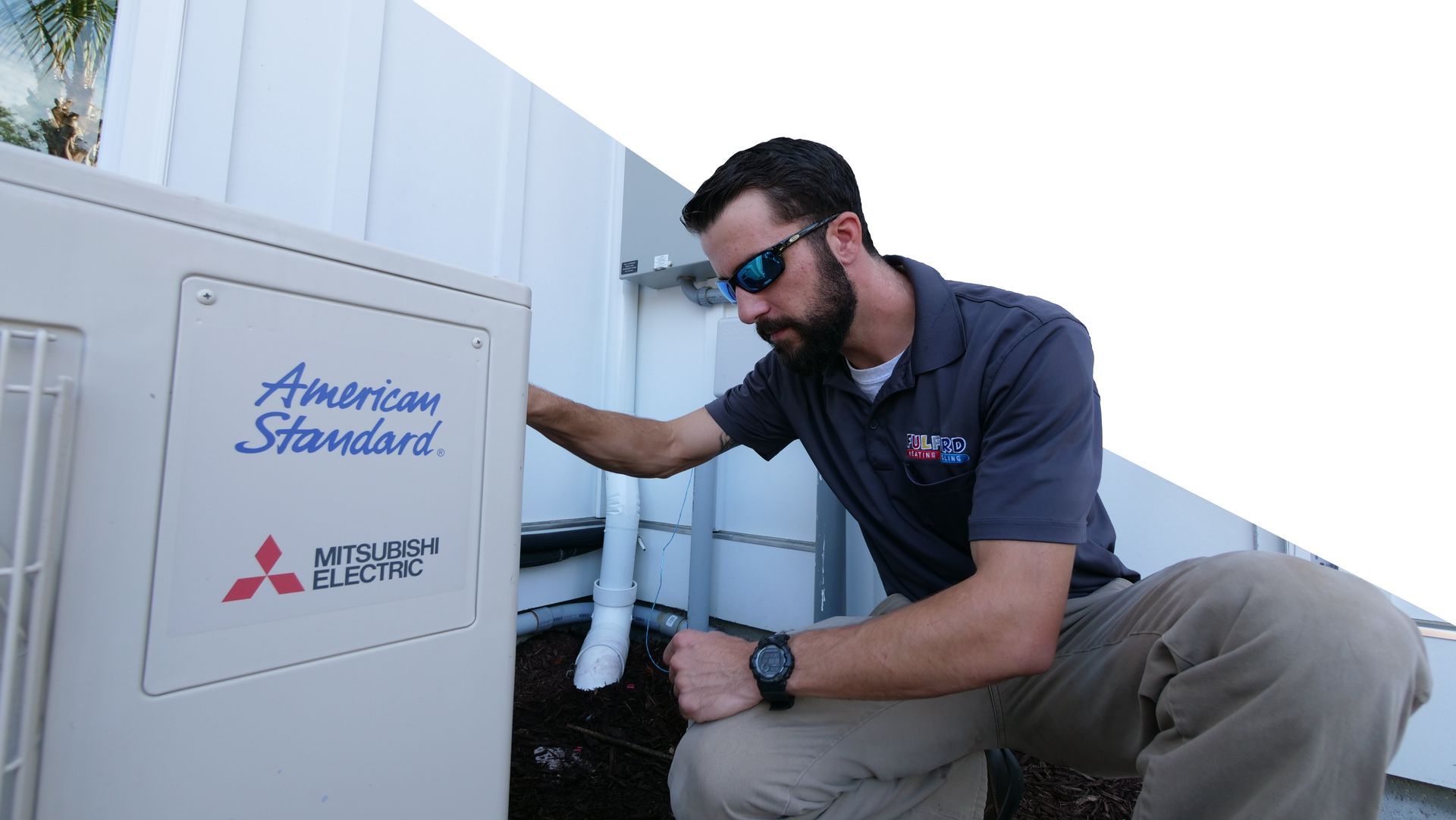
Living in Wilmington means enjoying beautiful beaches, salty sea breezes, and mild winters—but it also means dealing with a unique coastal climate that can take a toll on your home’s HVAC system. At Fulford Heating & Cooling, we know how important regular HVAC maintenance is for keeping your system running efficiently and reliably in our region. Coastal Climate Challenges for HVAC Systems Wilmington’s proximity to the Atlantic Ocean brings high humidity, salty air, and fluctuating temperatures, especially during summer. These conditions can cause faster wear and tear on HVAC components, leading to corrosion, reduced performance, and higher energy bills. Here are just a few reasons why routine HVAC maintenance is essential in Wilmington: 1. Combat Salt Air Corrosion Salt from the ocean can settle on your outdoor HVAC unit, accelerating rust and corrosion. Without regular cleaning and inspection, coils and other metal parts may break down prematurely—resulting in costly repairs or even full system replacement. 2. Improve Energy Efficiency Humidity and heat can cause your HVAC system to work overtime. A well-maintained system runs more efficiently, saving you money on your monthly utility bills. Our maintenance visits include checking refrigerant levels, cleaning coils, and tightening electrical connections to ensure peak performance. 3. Protect Indoor Air Quality Coastal humidity can also lead to mold and mildew growth inside ducts and around your HVAC equipment. Routine filter changes and cleanings help maintain good indoor air quality and reduce allergy symptoms—especially during Wilmington’s damp summer months. 4. Extend the Life of Your System Regular maintenance helps spot small problems before they become major breakdowns. Our experienced technicians at Fulford Heating & Cooling are trained to identify early signs of wear and address them promptly, extending the life of your HVAC system and protecting your investment. 5. Stay Comfortable Year-Round Whether it’s sweltering in July or cool in January, Wilmington weather can change quickly. Regular tune-ups ensure your system is ready to deliver consistent comfort, no matter the season. Trust Fulford Heating & Cooling for Local Expertise As a trusted HVAC contractor in Wilmington, NC, Fulford Heating & Cooling has served our coastal community for decades. We understand the unique challenges of maintaining HVAC systems in this environment and offer customized maintenance plans to keep your home comfortable all year long. Check out our Air Conditioning service page to learn more about how we can keep your Wilmington, NC home cool and comfortable all summer long. Schedule Your HVAC Maintenance Today Don’t wait for a breakdown to think about your HVAC system. Call Fulford Heating & Cooling today to schedule a maintenance visit or ask about our service agreements designed specifically for Wilmington homeowners. 📞 (910) 842-6589
